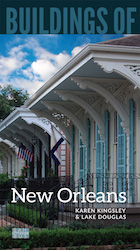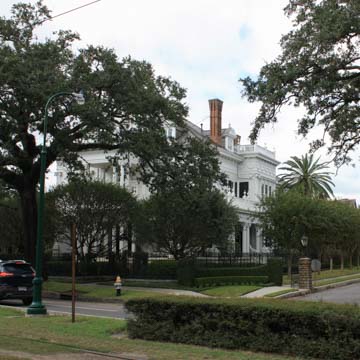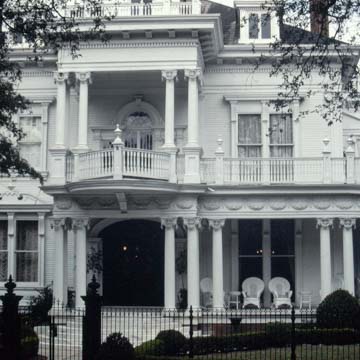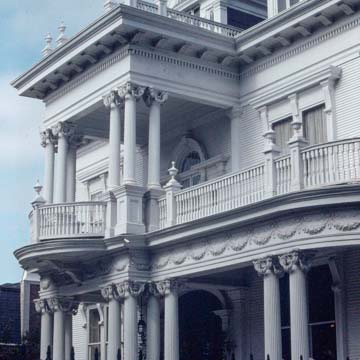Known as the “wedding cake” house because of its tiered appearance, profuse decoration, and all-white exterior, this residence was described as “colonial” by the architects, though rarely is this style so festive. The single-story gallery of the wooden house is supported on clusters of columns with lonic capitals draped with garlands, and garlanded friezes decorate the gallery entablature. Gallery balustrades are punctuated by finials in the shape of classical urns; window surrounds are adorned with scrolled brackets, moldings, and gooseneck gables; and the roof has elaborate dormers. The gallery is curved on the right side, which gives the symmetrical facade the deceptive appearance of asymmetry. A porte-cochere on the left side of the house and a gallery have identical decoration. Toledano was in partnership with Ferdinand Reusch (1826–1901) when the house was built. A detailed drawing of the elevation, signed but undated, identifies Toledano and Wogan (Victor Wogan, 1870–1953) as the architects; their partnership was formed in 1901 and lasted until 1914. The house was severely damaged in 1907 following an electrical fire; the extent of the restoration is unknown. The liveliness of the design was probably influenced by buildings at the World’s Columbian Exposition of 1893 in Chicago, particularly the New York State Pavilion by McKim, Mead and White.
Born in Ireland, Nicholas Burke arrived in New Orleans in 1850, married Lizzie Hanton in 1857, made a fortune in the retail grocery business, was one of the founders of Hibernia National Bank, and was financial adviser to Irish-born Margaret Haughery (see OR128).














